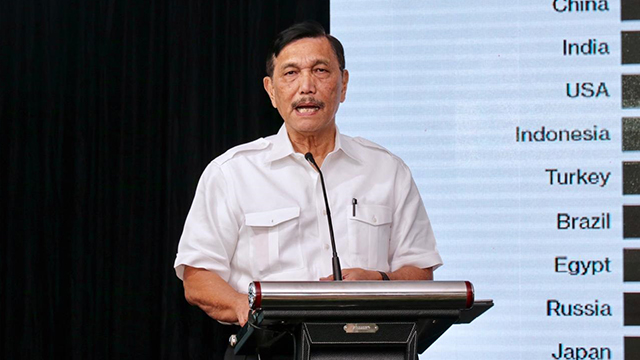Jakarta (Greeners) – Indonesian government rise up temperature on its heated relationships with European Union over palm oil for biofuel issue by calling for boycotts on several of European products.
“The government is assess to boycott several of European products,” said Coordinating Minister for Maritime issues, Luhut Binsar Pandjaitan, in a press statement on Saturday (30/3/2019).
READ ALSO: WALHI Blasted Luhut Pandjaitan’s Statement to Pull from Paris Agreement for Palm Oil Negotiation
Minister Luhut said that palm oil industry absorbs at least 18 million people, hence EU’s decision to stop buying the country’s palm oil for biofuel will affect the poverty rate in Indonesia.
Furthermore, he said that the government is serious to protect farmers’ welfare and millions of people depending their lives in palm oil industry.
“If prices go down, what happens to the suppliers? [What happens] to farmers? In this economical system, we need to keep the balance for suppliers to benefit and buyers to be comfortable,” he said.
Previously, Minister Luhut threatened to pull off from Paris Agreement if EU does not change its decision about palm oil for sustainable energy in Europe. This prompted backlash from civil organizations, such as Indonesian Forum for the Environment and Greenpeace Indonesia.
READ ALSO: ISPO and RSPO Certifications for Indonesia’s Sustainable Oil Palm Industry
Annisa Rahmawati, forest campaigner for Greenpeace Indonesia, said that palm oil as biofuel is the wrong solution as there are more carbon prints from land and peat conversions compare to fossil fuels.
Based on the latest report from IPCC, it is stated that to end deforestation, to protect last standing forests and to start massive and global restoration are the solutions to save climate.
Rahmawati also said that to increase palm oil as biodiesel mix would require more lands, which ends up competing with lands availability for food production and affecting food security.
Currently, biodiesel leans on government’s subsidy, so lifting it will hike the price and it will no longer be competitive with fossil fuel.
“There are piles of homework for the government to tackle palm oil industry problems, [such as] poor implementation of moratorium and one public map which ensures the protection of forests and peatlands,” she said. “In addition, to absorb abundant CPO for domestic market which should be focusing on the downstream [industry] and increase small farmers’ welfare in the transition phase, also to offer real and genuine investments in renewable energy industry, other than biofuel, as the solutions. This should be prioritized.”
Reports by Dewi Purningsih



















































